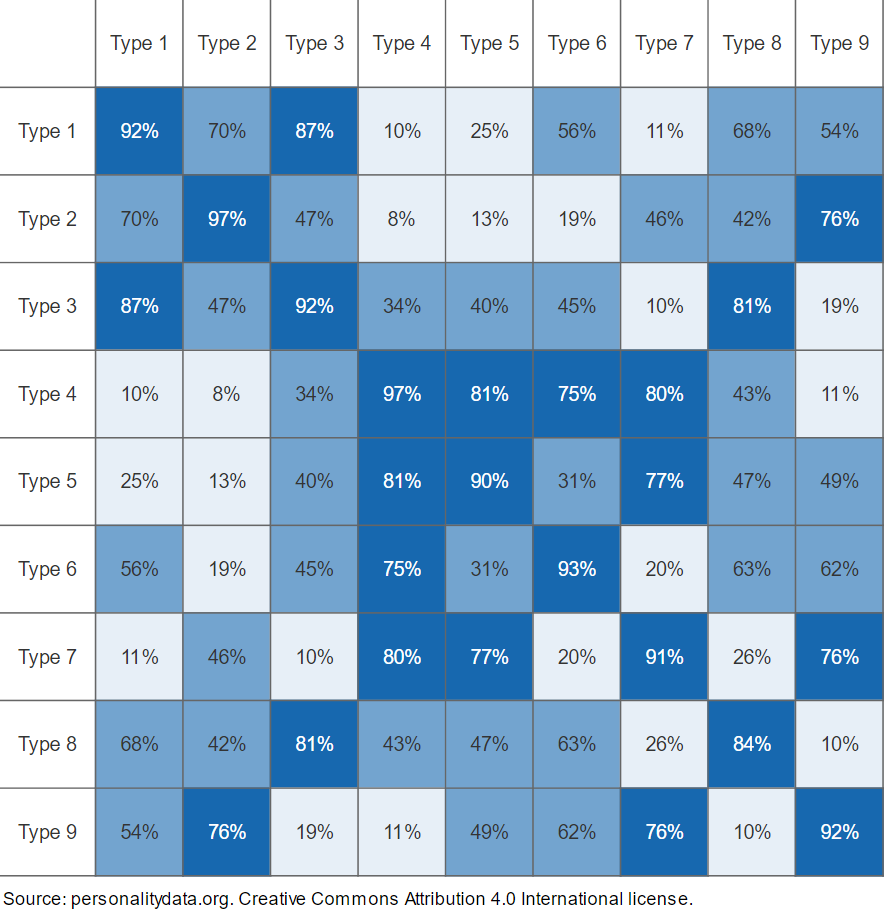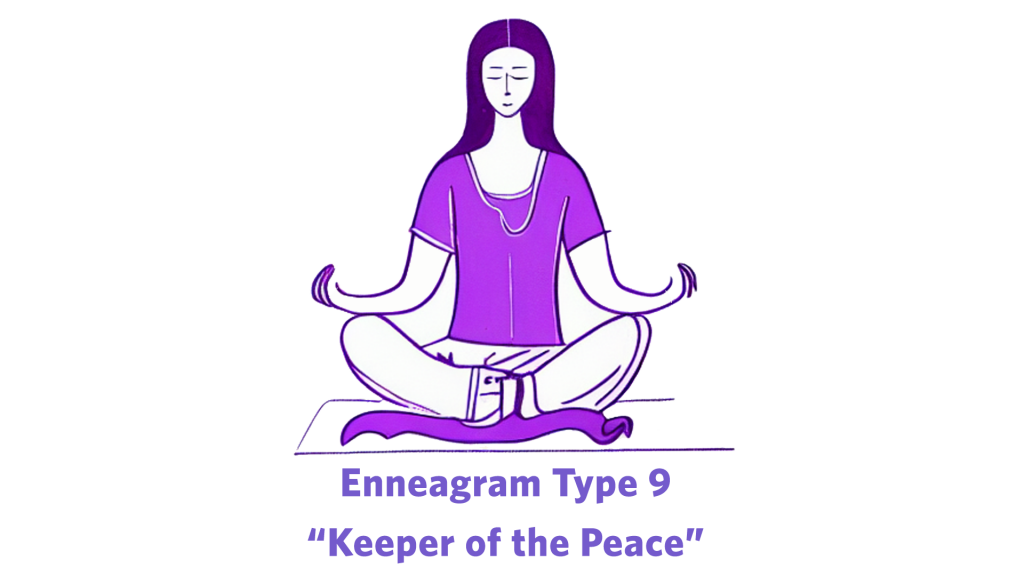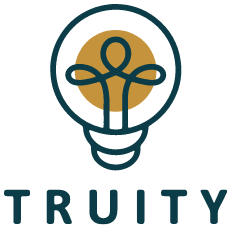Successful relationships are primarily based on the willingness of the partners to nurture and continually work on the relationship and its issues. However, there are other aspects of compatibility that are pontificated about within pop culture including zodiac signs, love languages, and personality types. Personality types are one of the most interesting aspects of relationship compatibility as they are shaped by our own perception of ourselves and the world.
One of the most popular types of personality tests is the enneagram personality test. There are 9 different enneagram personality types, all of which have different levels of compatibility with one another. In this article, I will dive into enneagram compatibility and show you which are the most compatible enneagram types. This can help you understand which enneagram relationships you are most likely to be successful with with and how to improve your relationship with less compatible types.
Enneagram Compatibility Explained
As humans, we are naturally drawn to compatibility tests. We have an innate desire to find the people that we are most likely to get along with and the group that we belong to. The Enneagram is a great way to help us do this.

The test takes all the complexities of the human condition and places them neatly into 9 different categories. These 9 categories are then split into three bigger groups, known as centers of intelligence. Before I get into the compatibility of the 9 different personality types, let’s look at the three groups we can belong to.
The Gut Center
The first category is known as the Instinctive or Gut Center. In this group are the type 1’s (Advocates), type 9’s (Keepers of the Peace), and type 8’s (Rivals). Although these numbers are all quite different, they share the same center of intelligence because their gut instincts are the same. All of the personality types in this group take in life through their gut instincts, this means that they generally respond based on what their gut tells them.
All three of the personality types in the Gut Center are concerned with justice, seek autonomy, and have the underlying issue of anger. Despite these personality types sharing the same underlying anger issues, they deal with this differently. Type 8’s tend to display their anger, 9’s will deny their anger, and 1’s will likely repress their anger. This is extremely useful when determining your enneagram relationship compatibility!
The Heart Center
This particular center of intelligence is home to type 2’s, 3’s, and 4’s. All of these personality types share the same heart instincts despite their differences. All of the personality types in this category take in life through their feelings or their heart. They will generally respond to things based on what their feelings are telling them.
The personality types in this category are all concerned with image, seeking attention, and their underlying issue is shame. While all of these personality types deal with shame as their underlying issue, they deal with this in different ways. Type 2’s will tend to focus their feelings outward, type 3’s are likely to deny their feelings, and type 4’s will focus their feelings inward.
The Head Center
The final enneagram category is home to type 5’s, 6’s, and 7’s. All of these personality types share the same head instincts. Each of these types tends to take in life through their head and will generally respond based on what their mind is telling them to do.
Type 5’s, 6’s, and 7’s are all primarily concerned with strategies, seeking security, and their underlying issue is fear. Despite the shared issue, each of these types deals with the issue of fear differently. 5’s are likely to be anxious of the outside world, type 6’s tend to be anxious internally, and type 7’s often try to deny their anxiousness altogether.
This image from PersonalityData.org offers an enneagram compatibility chart that can be used to explain how different personality types could get along with each other in social situations.

It can be a useful tool to help understand the different dynamics that could develop depending on a group’s personality types. The enneagram compatibility chart is not designed to explain compatibility, however, it can be used to inform understanding of how a conflict would be resolved by combinations of personalities.
If you’re worried about which types are the LEAST compatible, watch this short video from Abbey Howe:
Enneagram Compatibility – Type 1
The type 1 personality is known as The Advocate.

This type of personality is known to be rational and are on a perpetual mission to improve themselves and their surroundings. They are often regarded as perfectionists. These are qualities that bleed through into the relationships that Advocates have.
This personality type is likely to be honest with their partners and is incredibly considerate of their chosen other’s needs. It is also common for type 1 personalities to always feel that they are right. Their honesty can also come across as arrogance to some people. Advocate personalities can often feel insecure about themselves and their relationships.
Type 1 personalities often pair well with people who are goal-oriented and driven. Because of this, type 1 and type 3 personalities are often considered to be compatible. However, their joint competitive natures can cause issues. Type 1’s can face difficulties in relationships with others who have wildly different worldviews. While the other person may overlook a type 1’s perspective without passing judgment, type 1’s can become critical of their partner’s views.
Type 1 personalities can face intense difficulties with type 5 personalities. Any conflict that arises between these two personality types can remain unresolved for extended periods of time due to each personality holding such strong beliefs.
Enneagram Compatibility – Type 2
The type 2 personality is known as The Wingman.

There are many characteristics that type 2’s possess that can lead to successful enneagram relationships. Type 2’s have a deep and genuine concern for taking care of others. This translates well to relationships. Whoever a type 2 is in a relationship with will have their needs well taken care of. Type 2’s are incredibly selfless individuals, however, they tend to give until they burn out. This, combined with a lack of recognition from their partner can lead to resentment.
It is easy for type 2’s to end up in toxic relationships due to their search for appreciation which can cause trauma. The pairing of type 2 and type 3 is regarded by the Enneagram Institute as one of the most attractive and impactful enneagram relationships.
I’ve done an even deeper dive into the match up with type 8 and type 2 here as well as types 2 and 9.
Enneagram Compatibility – Type 3
A type 3 personality is known as The Pioneer

As the name suggests, Pioneers are highly driven people and they are focused on forging new ways to do things. In combination with this, they also tend to genuinely care about others. This can occasionally mean that they put all of their energy into a relationship, but it also means that other goals can distract them from it. One of the best characteristics of the type 3s is their adaptability in changing situations.
In terms of enneagram compatibility, a relationship of two Pioneers will be highly goal-driven and both partners will encourage the other to chase their goals. Although this isn’t the most emotional connection, it is a highly compatible relationship.
Pioneers can also be highly compatible with 5’s. According to the Enneagram Institute, these enneagram relationships can be sharp, successful, deeply competent, and well respected. Another great enneagram compatibility is between 3’s and 7’s. This pairing is incredibly outgoing and adventurous together.
Enneagram Compatibility – Type 4
This personality type is known to Fly Solo.

Individualists are very independent, they can often be considered by others as being self-absorbed. These individuals are highly attuned to their own emotions and are naturally expressive people. Type 4’s are not known to shy away from their feelings, this means that they are quick to jump into happy relationships. However, these individualists often have insecure characteristics that can cause relationship issues. They are likely to compare their relationship with a perfect image. This constant comparison can lead to type 4’s feeling misunderstood and alone.
They are able to make successful enneagram relationships with almost any other type of personality. Relationships that contain a type 4 are likely to be highly creative and highly volatile. Their understanding of emotions makes them incredibly caring but also causes them to struggle when stressed. A type 4 and 9 is one of the few that is not the best combination…
Enneagram Compatibility – Type 5
Type 5 personalities are known as The Scholars.

By nature, Scholars are fairly isolated individuals who are curious about the world and people around them. They are the most secretive of all the personality types, but they are also very innovative.
Within a relationship, Scholars are known for their listening skills and non-reactive demeanor. This quality makes them highly compatible with outspoken personality types. The biggest fault that Scholars struggle with is building walls to protect themselves. They also have a tendency to act as if their partner isn’t competent.
In terms of enneagram compatibility, type 5’s and type 6’s can form strong connections. They will support each other and are able to handle the stressors and changes of life.
5’s and 8’s also have a level of enneagram compatibility, although there is the potential for them not to be. Type 5’s will become shut down and less emotionally available during times of stress. 8’s can be reactionary in the same circumstances and become aggressive. This can lead to toxicity.
Enneagram Compatibility – Type 6
Type 6’s are known as The Dependable.

As the name suggests, type 6’s are generally considered to be the most committed and dependable of all 9 personality types. They will throw themselves into a relationship, but they may experience anxiety about it afterward which can lead to cautiousness. Dependables have a tendency to overthink relationships which can lead to a premature demise.
The enneagram relationships of Dependables can be difficult with personality types that are prone to taking risks. Type 6’s place a high value on security in relationships and quick decisions and spontaneity could be a point of contention.
Type 9’s and type 6’s can have a high level of enneagram compatibility. Both types have similar goals in life and can work together. A drawback is that neither type is comfortable with speaking their mind.
Enneagram Compatibility – Type 7
A type 7 personality is known as The Aficionado.

This personality type is the most adventurous and joyful of all the enneagram personalities. They enjoy taking risks and spontaneity. In the context of a relationship, Aficionados will work hard to inspire their partner. Although they may be wary of the connection and commitment required early on. When a connection has been established, Aficionados will become fiercely loyal.
A type 7 and type 8 pairing will be high-energy and incredibly adventurous. However, these relationships have a tendency to become unhealthy if neither partner has a healthy outlet for their energy. Aficionados are not compatible with type 8’s or type 6’s as they are polar opposites and will have a tough time communicating and seeing the world in a similar light.
Enneagram Compatibility – Type 8
This personality type is known as The Rival.

This personality type is possibly the most headstrong of all the enneagram personalities, hence the name. Rivals enjoy being the leader in all areas of their life, including their relationships. Rivals are extremely confident in themselves and are passionate and confrontational by nature.
The greatest weakness of a Rival personality is their inability to loosen their control over situations. Despite the tough exterior of the Rival personality, they are actually quite emotional creatures. It is this emotion that makes Rivals reactionary. Because of this, they work quite well with non-reactive personalities such as type 5’s.
However, a Rival personality can struggle in a relationship with a personality that isolates when stressed. Also, if a personality type is not comfortable or able to defend themselves, it can lead to a toxic relationship.
Enneagram Compatibility – Type 9
This personality type is known as the Keeper of the Peace.

The Keeper of the Peace personality type is extremely submissive in relationships to the point of complacency. This is especially true if the other partner is more forthcoming. However, they do bring some important strengths to a relationship. These strengths include a hyper-awareness of the feelings of others and a strong desire to avoid conflict. Unfortunately, to avoid conflict so successfully, Peacemakers will often avoid disclosing their feelings and needs.
Enneagram relationships between two Peacemakers will be very quiet and understanding. Both partners will be happy to go with the flow during the relationship, however, they will struggle with any changes to the relationship. Peacemakers are also compatible with 6’s. Although these personalities are different, their goals are actually quite similar and they will be supportive of one another’s goals. Although type 2 and 9 work well together, type 4 and type 8 with a 9 are both matches to be weary of.
Final Thoughts
There are aspects of each personality type that dictate the compatibility of enneagram relationships. The different components of each relationship type can influence the type of relationship that two individuals have. While the compatibility of different personality types should be taken with a grain of salt, it can be a useful way to understand issues in a relationship and how to resolve them.

